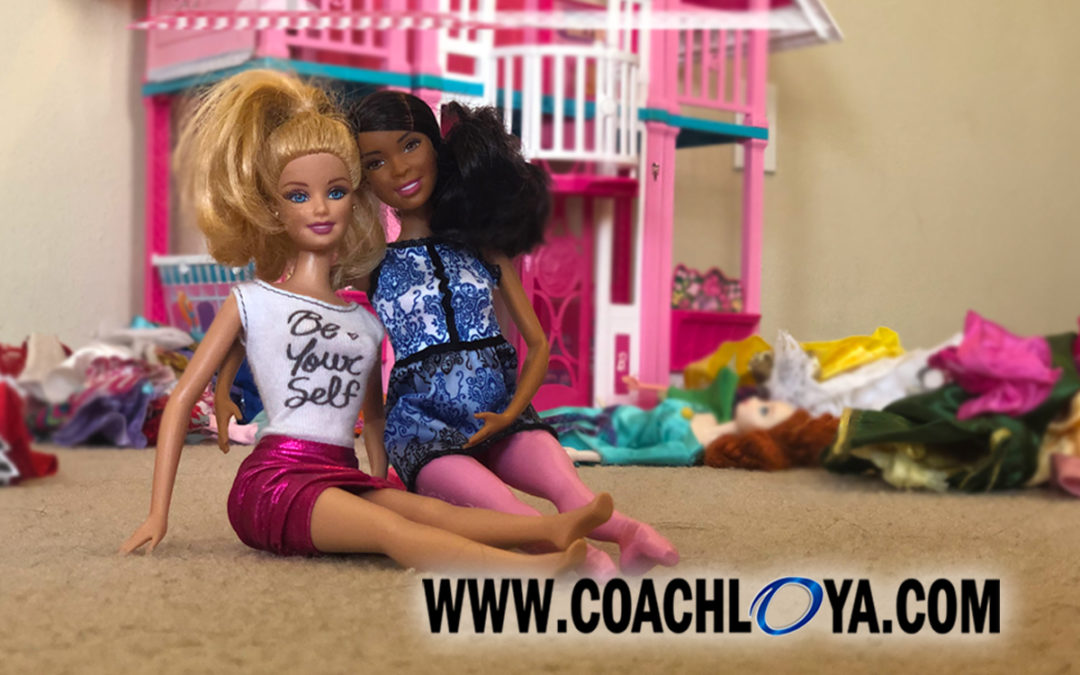After much deliberation, my middle school-aged daughter decided to part ways with her Barbie dolls this week. She has amassed quite a collection over the years, but she doesn’t play with them the way she used to.
Alas, it was, in her words, “Time to let ‘em go.”
As she sorted through her collection, she began setting a few dolls aside that she wanted to hold onto for various reasons (This was the first Barbie I ever got. This one is a limited edition. I’m going to save this one to give to my daughter someday.)
What began in her bedroom as a simple sorting process soon spread to a major operation in our living room. Dozens of Barbies, piles of doll clothes, and nearly every color and style of plastic shoe imaginable sprawled across the floor.
My daughter combed through the mess, painstakingly trying to match every individual doll with its original outfit. Her mother and I questioned her need to be so meticulous. If she was donating the dolls to charity, did it matter what clothes they had on? Did the dolls even need to be clothed?
Undeterred, she continued to sort. It occurred to me that her insistence on pairing the dolls with their original outfits was her way of saying goodbye. She was, in her own way, grieving.
Grieving can be triggered by any number of events. It is a natural emotional response to loss. In this case, my daughter was grieving the impending loss of her Barbie dolls—which represented the loss of a part of her childhood, her comfort zone, and her identity.
When you’re part of a team, you may at some point find yourself in a position where you need to help a grieving teammate.
Your teammate may be grieving over the death of a loved one, or they may be grieving over something that seems less significant to you, like a relationship breakup, a change in title or responsibilities, the realization of it being their final season, or a looming retirement. All of those “losses” equate to change, and change can be hard to handle.
You can help a grieving teammate by doing the following:
Conceal. Your teammate may not be aware that their grieving is causing others grief. For instance, my daughter was oblivious to the anxiety and inconvenience her sprawling Barbie doll mess was causing her parents. Your teammate’s grief may be creating a similar situation for you and the other members of your team.
If this is so, do your best to not let them become aware of the grief their grieving is causing others. They’re experiencing enough stress as is, they don’t need you compounding it. Accept that carrying an unbalanced load while they are grieving is a good teammate move and what is best for the team at this moment.
Feel. Practice intentional empathy. Imagine what it must feel like to be in your teammate’s shoes. Their loss could be causing them to feel vulnerable and helpless, which could lead to their withdrawal. A bit of understanding on your part can help both of you cope with their grief.
On a side note, unless you have specifically gone through the identical experience, resist the urge to verbally commiserate with their grief. Though perhaps well intentioned, equating your experience to theirs may come across as insensitive and exacerbate the situation. Commit, instead, to maybe just being a good listener.
Let them heal. While they will likely progress through the fives stages of grief (denial, anger, bargaining, depression, and acceptance), there is no timetable for how long the process will take, nor an order to the way they will experience these stages—if they do at all.
Grieving is unique to each griever. Be patient with your teammate during the process. Let them know that you are willing and available to help them in whatever way you can, whenever they need.
People become loyal to those who were there to support them when they were at their lowest. Loyalty leads to trust and deep commitment—two attributes of good teammates.
Before my daughter dropped her last Barbie doll in the bin, she looked at me and said, “I’m done with the Barbies, but I’ll always have the memories.”
My heart smiled and I realized it was her who was being the good teammate. She was helping her parents get through the grief of watching their little girl grow up. Good teammate move on her part.
As always…Good teammates care. Good teammates share. Good teammates listen. Go be a good teammate.





